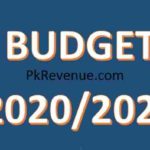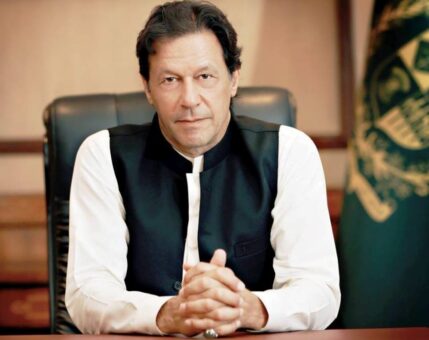KARACHI: The government likely to set an ambitious revenue collection target for budget 2020/2021 with less focus on documentation of economy in order to promote business.
According to Budget 2020/2021 preview released by Topline Securities on Thursday, the government is expected to announce the Federal Budget for FY21 on June 12, 2020.
The budget is likely to take into account the implications of COVID-19 outbreak, where it will try to ease the pain of the masses due to the pandemic by focusing on job creations and relief for the businesses.
The analysts at Topline Securities expect IMF to show some leniency with the government in setting targets for next year, taking into account the impact of COVID-19 outbreak.
The key challenge for the govt. will be restricting the fiscal deficit for the upcoming year as not only the govt. will have to factor in higher expenditures relating to COVID-19 outbreak, but also take hit on revenues because of the slowdown in overall economy.
The government is already facing the prospect of registering a huge fiscal deficit of 8.0-9.0 percent of GDP in FY20 (primary deficit 3-4 percent).
They believe the government will try to restrict the fiscal deficit in the budget to 8.5-9.0 percent of GDP for FY21 (6.5-7.0 percent excluding COVID-19 expenses), where expenditures relating to COVID-19 are likely to be marked separately.
Recall that IMF had agreed to not include the expenses incurred on combating COVID-19 as part of budget deficit for FY20.
They believe the same relief can be extended for 2020/2021 as well.
They said the government is likely to earmark Rs1 trillion for dealing with COVID-19 pandemic and for providing relief to the business community.
Considering the recession, the government may try to boost the economy through providing incentives to the agriculture sector.
The government may give shape to earlier announced subsidy on fertilizers, tractors etc., which was part of the Rs50 billion Agriculture package along with few more steps.
The government is also likely to focus on the construction industry in the Budget 2020/2021, where the government believes such relief measures can provide ease for the daily wagers.
One of the measures is likely to include reduction in Federal Excise Duty (FED) on Cements. The government has already announced a construction package to support the economy.
The analysts believe the government is likely to be less vocal about the documentation of the economy (unlike in recent previous budgets), as it may hurt the businesses.
The analysts further said FBR is reportedly considering increasing the limit for providing Computerized National Identity Card (CNIC) on purchases of Rs50,000 to Rs100,000 in the upcoming budget.
The government may announce relief measures with respect to reduction in import duties, taxes on essential food items etc.
The government last year had increased these duties to curb the Current Account Deficit, which as desired resulted in contraction of imports but also led to a lower collection of import duties as quantity of imports fell.
The government is in talks with the IMF to set the revenue collection target for the next year. The government wants to keep the FBR revenue collection target at around Rs4,800 billion, whereas IMF wants the same to be close to Rs5,100 billion (vs. Rs3,900-4,100 billion likely to be collected in 2019/2020).
The analysts believe the government will once again set an ambitious FBR revenue collection target of Rs4,800-5,100 billion, which we believe will be difficult to achieve.
Assuming nominal GDP growth, the government is likely to achieve FBR Revenue collection of Rs4,400-4,600 billion in the upcoming year, assuming smart lockdown ends by Jul-Aug 2020.
The government can look to generate additional Rs75-100 billion in the form of Petroleum Levy in 2020/2021. Last year the target was set at Rs216 billion. The government can potentially generate Petroleum Levy in the range of Rs300-350 billion in 2020/2021 due to the decline in international oil prices.
The government may look to increase taxes on beverages and cigarettes to bring them in line with other countries.
The government may also look to impose/increase taxes on luxury items like farmhouses, passenger cars etc.
The analysts believe a mini-budget in the later part of the year, especially if (1) the economy recovers slower-than-expected from the COVID-19 pandemic, (2) there are unforeseen developments due to COVID-19 and/or (3) global recession prolongs further.
The government will try to cut expenses, including (1) Development Expenditures, (2) Current Expenditures and (3) Subsidies while making FY21 estimates.
The Federal Public Sector Development Program (PSDP) is expected to be around Rs550-600 billion for FY21 compared to last year’s budgeted target of Rs700 billion. The utilization of PSDP this year is likely to be between Rs575 billion -600 billion.
The Current Expenditure is likely to benefit from lower interest rates, where the govt. is likely to save around Rs600-700 billion in interest savings (from FY20 actual interest cost) and Rs800-900 billion from last year’s budgeted amount of Rs2.9 trillion.
The government is reportedly also likely to reduce the Power Sector subsidy by Rs30-50 billion (vs. FY20 target of Rs272 billion), aided by lower international oil prices and interest rates.
In total, the government can potentially save Rs600 billion -700 billion from the above without trimming down its Current Expenditures and Defense Expenditure.
Government is likely to allocate Rs1,000 billion separately for COVID-19 pandemic for providing relief to the masses and the business community. The government can further extend relief to the daily wagers through cash payments, suspension of utility payments for small consumers etc.
The government may make the Agriculture package part of the Federal budget with a few more additions. The package already includes a subsidy of Rs37 billion to farmers on fertilizers in the form of Rs925/bag on DAP and Rs243/bag on Urea.
It also includes a subsidy of Rs2.5 billion on Sales Tax on locally-manufactured tractors for a period of one year, and Rs8.8 billion subsidy is for mark-up on loans.
The government may provide some relief for the construction industry as well, in the shape of lower taxes and/or other measures to support the economy, Naya Pakistan Housing Program and construction of dams.
Salaries and pensions of government employees may be increased.
Tax rate on essential food items is likely to be reduced.
Likely introduction of a centralized loyalty program to provide more incentives to overseas Pakistanis sending remittances. Under this loyalty program, children of overseas Pakistanis will be given 50 percent discount in the Overseas Pakistanis Foundation (OPF) schools and colleges.
Regulatory and additional customs duties are also likely to be reduced by up to 2 percent. Currently, these duties range between from 2-7 percent.
Minimum tax exemption limit on salaried class may be increased.
As per news reports, government is also prioritizing higher allocation to safety net programs like Ehsaas and Kamyab Jawan Program.






